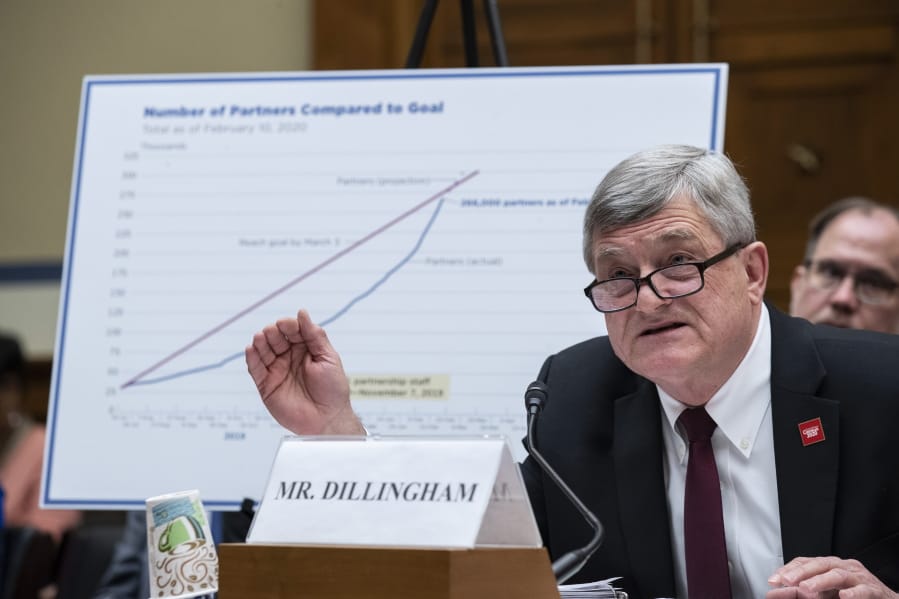ORLANDO, Fla. — The stakes are high when a major civic exercise involves a large population, new technology that has not been thoroughly tested and an entire country waiting on the results.
Just ask the organizers of the Iowa caucuses, which offered a cautionary tale on the technological woes that could befall a big political event. Some observers worry that this year’s census carries the same potential for mayhem — except on an infinitely larger scale.
The U.S. Census Bureau plans to try out a lot of new technology. It’s the first once-a-decade census in which most people are being encouraged to answer questions via the internet. Later in the process, census workers who knock on the doors of homes that have not responded will use smartphones and a new mobile app to relay answers.
A government watchdog agency, the Census Bureau’s inspector general and some lawmakers have grown concerned about whether the systems are ready for prime time. Most U.S. residents can start answering the questionnaire in March.
“I must tell you, the Iowa (caucus) debacle comes to mind when I think of the census going digital,” Eleanor Holmes Norton, the congressional delegate for the District of Columbia, said this week at a hearing on the census.
Cybersecurity is another worry. Experts consider the census to be an attractive target for anyone seeking to sow chaos and undermine confidence in the U.S. government, as Russia did in the 2016 presidential election.
In a worst-case scenario, vital records could be deleted or polluted with junk data. Even a lesser assault that interfered with online data collection could erode public confidence. In 2016, a denial-of-service attack knocked Australia’s online census offline, flooding it with junk data.
The Census Bureau says it’s ready. The agency promises that responses to the questionnaire will be kept confidential through encryption, and that it’s working with the Department of Homeland Security and private-sector security experts to thwart cyber attacks. To hinder illegitimate responses, the bureau is blocking foreign IP addresses and stopping bots from filling out fake responses, among many other measures.
The bureau says it has developed two secure data-collection systems, so that if one goes down, the other can substitute.



